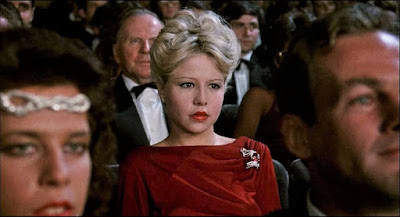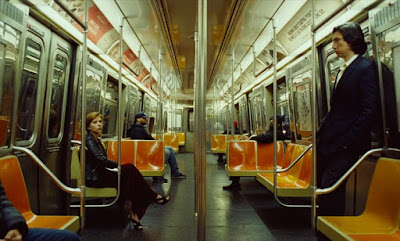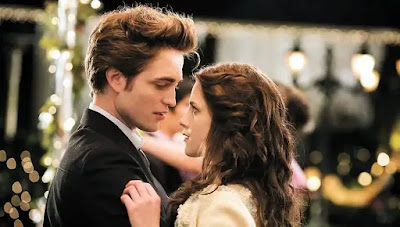Friday, September 1, 2023
Suspiria / **** (1977)
Wednesday, August 30, 2023
An American Werewolf in London / ***1/2 (1981)
Tuesday, January 31, 2023
Mandy / * (2018)
 In theory, a movie like “Mandy” would be right up the same alley of brazen gorefests that have been known to captivate my morbid sense of voyeurism. Ripped from the familiar cloth as any number of audacious horror stories set in the lurid world of pulp fiction, the picture makes a bold promise from its very first frame: all that is about to happen will be unlike anything we have witnessed on screen – or, at the bare minimum, fresh enough to draw comparisons to Dario Argento and Mario Bava, the architects of the decadent excess we associate with Giallo. Indeed, countless critics and colleagues have hailed the picture as a triumph of its medium, a surrealistic experience where the framework of the familiar revenge formula is twisted into a fever dream of contemplative symbolism and thematic excess. And who wouldn’t want that, especially nowadays as the genre appears caught somewhere between the extremes of vague nuance and gratuitous overkill?
In theory, a movie like “Mandy” would be right up the same alley of brazen gorefests that have been known to captivate my morbid sense of voyeurism. Ripped from the familiar cloth as any number of audacious horror stories set in the lurid world of pulp fiction, the picture makes a bold promise from its very first frame: all that is about to happen will be unlike anything we have witnessed on screen – or, at the bare minimum, fresh enough to draw comparisons to Dario Argento and Mario Bava, the architects of the decadent excess we associate with Giallo. Indeed, countless critics and colleagues have hailed the picture as a triumph of its medium, a surrealistic experience where the framework of the familiar revenge formula is twisted into a fever dream of contemplative symbolism and thematic excess. And who wouldn’t want that, especially nowadays as the genre appears caught somewhere between the extremes of vague nuance and gratuitous overkill?
Sunday, September 26, 2021
Taxi Driver / **** (1976)
Friday, July 16, 2021
"The Shining" Revisited
What is it about the Overlook Hotel that casts such an ominous cloud? How do the mysterious, inexplicable events surrounding a small and isolated family affect the terror they inflict on one another? These are just two of the broad questions hovering over a long mystery in “The Shining,” a movie of ageless dexterity that also remains one of the more fascinating case studies in academic film analysis. When it arrived in theaters over four decades ago, the conventional wisdom at the time had been swift and dismissive: the exacting hand of one Stanley Kubrick had lost sight of a cogent vision, supplementing the famous source material by Stephen King with so much surrealistic ambiguity and nonsense that he had released a labyrinthian mess instead of a probing psychological essay. But much like his own “A Clockwork Orange” and “2001: A Space Odyssey,” time has offered a generous reassessment, and now the picture is usually seen hovering towards the top of most lists of the greatest horror movies ever made. When I first encountered it at the age of 15, my admiration for its technical skill and tone were undermined by an inability to decipher the clues. What was happening to the Torrance family? Were they being haunted by ghosts, pitted against one another by elaborate mind games? Would they have been seen if the young boy at the center of the action were not clairvoyant? Or were they simply imagined by people whose sanity had been compromised by isolation? Over 20 years and dozens of viewings later, I can finally speak with confidence on some of the great paradoxes the story weaves.



















